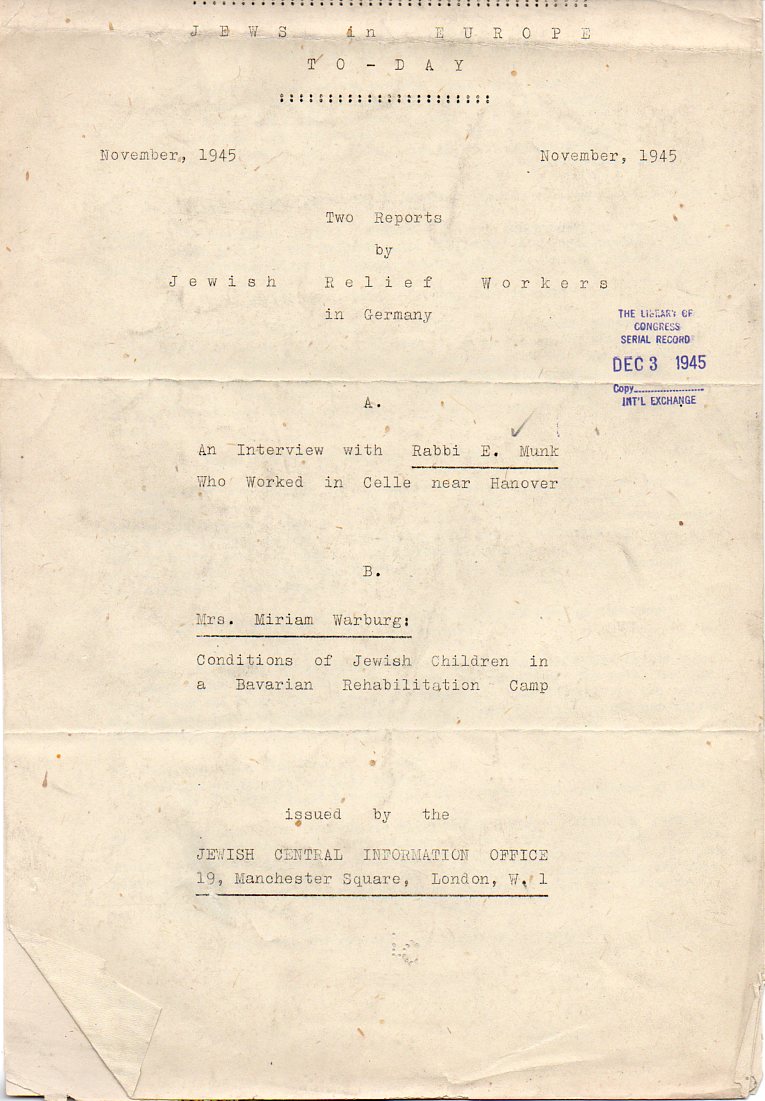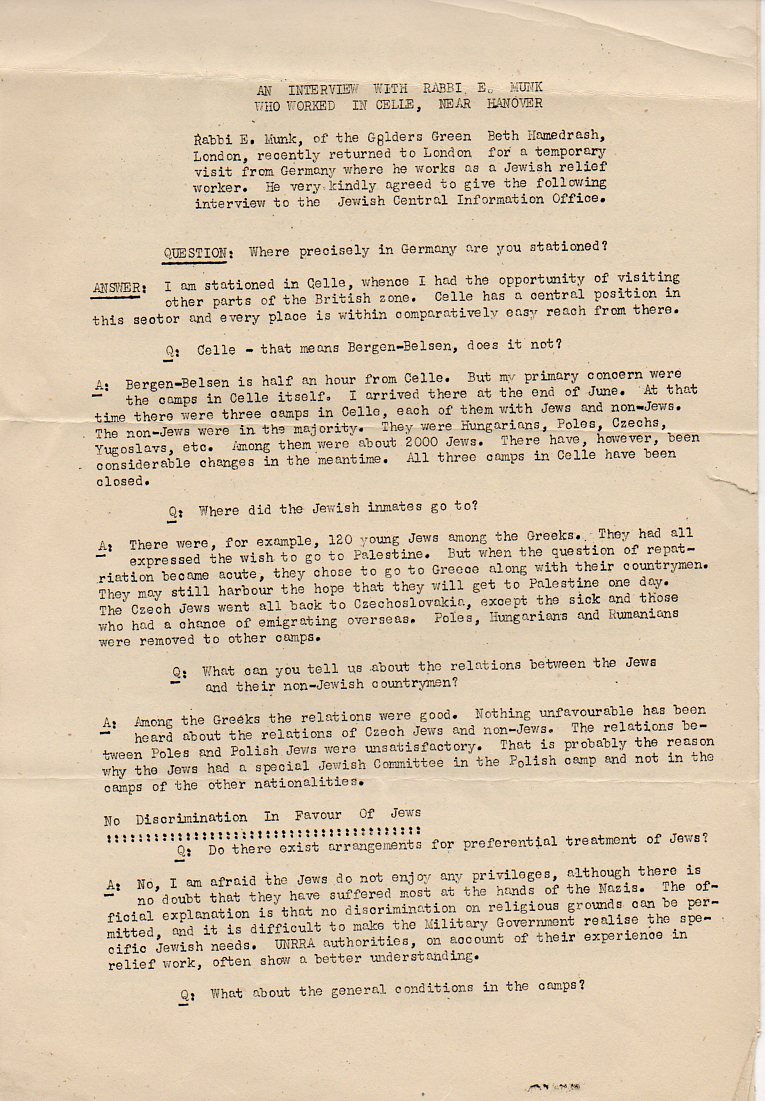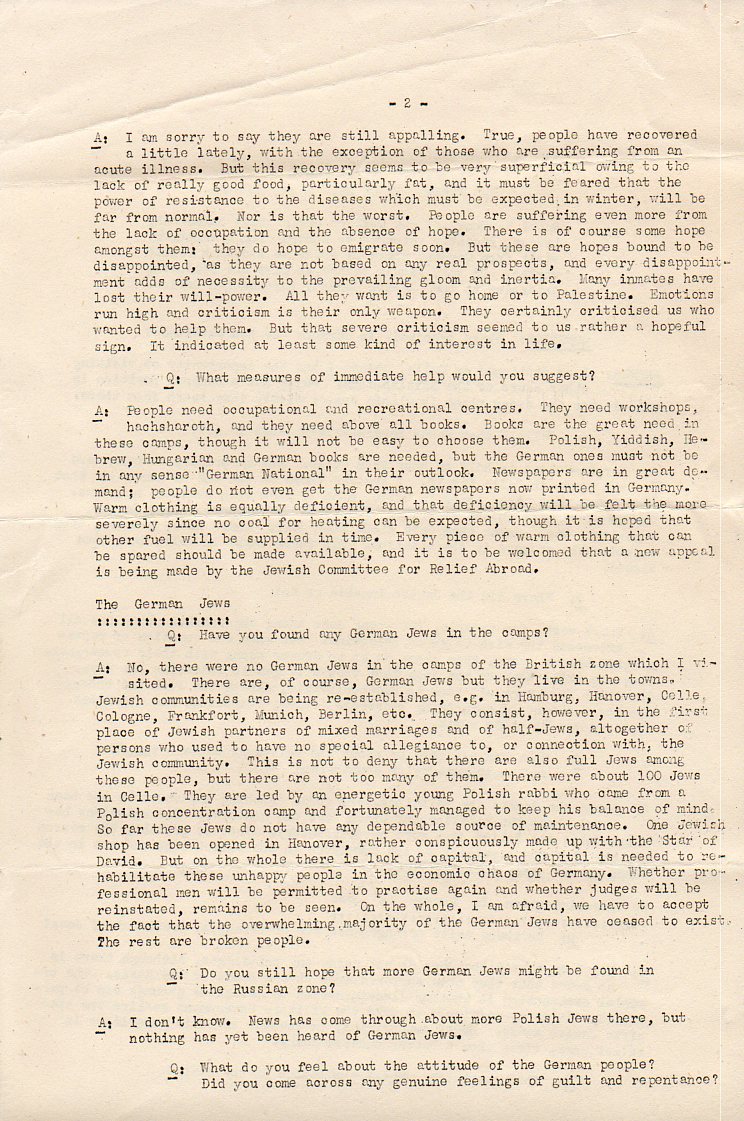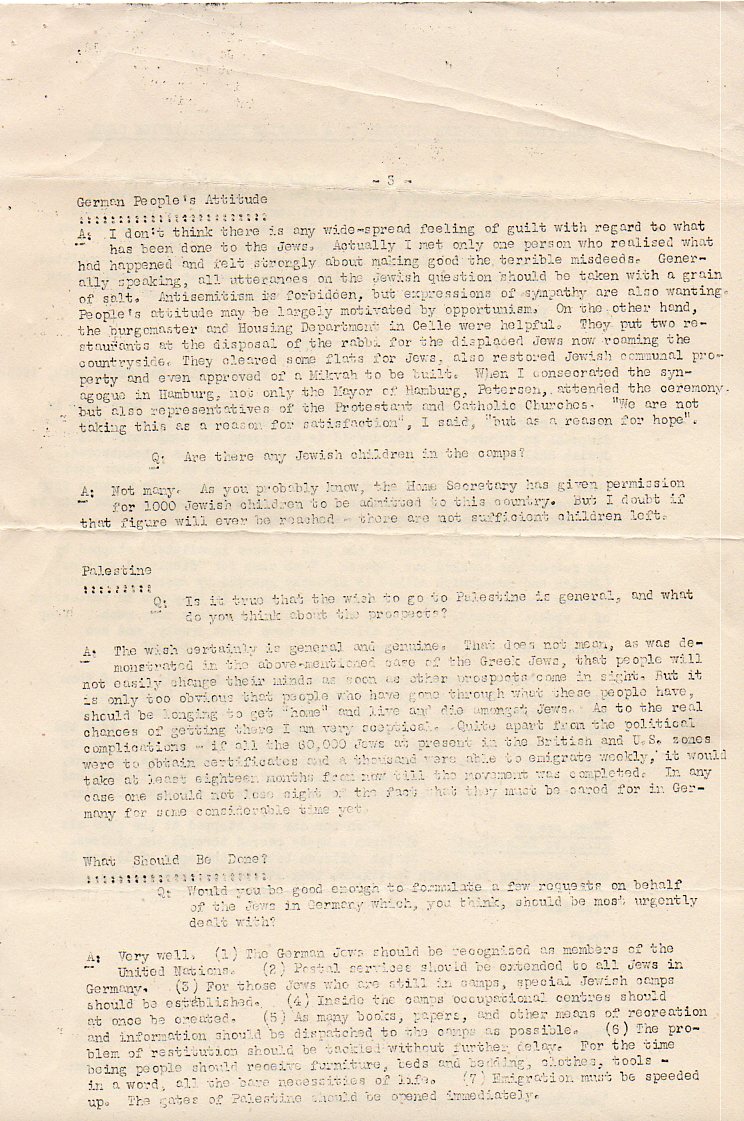ITEM: Jews in Europe Today. Two reports by Jewish Relief Workers in Germany. 13x8 inches, 6 leaves, 12 pages, 5000 words. Fair condition. Published November 1945. RARE. $1250.
JF Ptak Science Books Post 1260
Jews in Europe Today. Two reports by Jewish Relief Workers in Germany, published in London by the Jewish Central Information Center at war’s end,1945. The two reports comprising the whole: (1.) Interview with Rabbi E. Munk Who Worked in Celle Near Hanover, and (2.) Mrs. Miriam Warburg, Conditions of Jewish Children in a Bavarian Rehabilitation Camp.
 This rare document–I can find no copies in libraries worldwide, (according to RLIN, BMC, CARL, Marchive, the NUC and the massive WorldCat)– presents interviews with people who were on hand doing relief work right after the concentration camps were liberated and right at the beginnings of helping (or simply housing in many cases) the many displaced, newly-liberated people. (There were some 6 million displaced persons at the beginning of the peace, including a (very) estimated 200,000 Jews.)
This rare document–I can find no copies in libraries worldwide, (according to RLIN, BMC, CARL, Marchive, the NUC and the massive WorldCat)– presents interviews with people who were on hand doing relief work right after the concentration camps were liberated and right at the beginnings of helping (or simply housing in many cases) the many displaced, newly-liberated people. (There were some 6 million displaced persons at the beginning of the peace, including a (very) estimated 200,000 Jews.)
This document is a small insight into the conditions of the Jews in October/November 1945, and which is also I think unpublished. It was still an enormously difficult tome for the Jews–even though liberated, many thousands were still dying due to their treatment at the hands of the Nazis. For example, when Bergen-Belsen was liberated, there were some 60,000 Jewish survivors, but by the end of the first two weeks more than 9,000 of that number had died. In addition to continuing medical problems there were also high tides of anti-Semitism that ran through many of the DP camps–many of which received people by nationalities and not by religion, so there were continuing problems for Polish Jews who were placed in general Polish camps and who suffered from anti-Semitism there.
Rabbi E(lie) Munk of Golders Green Beth Hamedrash, London, contributed his report from a relief trip to Germany and was interviewed by the Jewish Central Information Office. Munk was in Celle, near Hanover, and attended three displaced person camps in the vicinity of the Bergen Belsen concentration camp (with his remarks occupying pages one through three of the document). He reported on the numbers of people in the camps as well as the relations between nationalities and Jews within the camps. For example, he says that the relations were good between Jews and Greeks, but "the relations between Poles and Polish Jews were unsatisfactory". Regarding the question of discrimination in favor of the Jews, Munk stated that "the Jews do not enjoy any privileges, although there is no doubt that they have suffered the most at the hands of the Nazis". He found the general conditions within the camps "to be generally appalling…many of the inmates have lost their will power …all they want to do is go to Palestine…"
On the question of German Jews, Munk reports that "there were no German Jews in the camps of the British zone which I visited...but that there were some Jewish communities, although most consisted of ‘mixed marriages and half-Jews’”. He continues: "on the whole, I am afraid, we have to accept the fact that the overwhelming majority of the German Jews have ceased to exist. The rest are a broken people".
Munk was questioned on the German people’s attitude towards the Jews, stating that "I don’t think that there is any wide-spread feeling of guilt with regard to what had been done to the Jews…anti-Semitism is forbidden, but expressions of sympathy are also wanting…". He also went on to say that the feelings of the refugees to go to Palestine was strong and genuine.
The remarks of (the Englishwoman) Mrs. M(iriam) Warburg occupy page four through twelve, and gathered under the title "Conditions of Jewish Children in a Bavarian Rehabilitation camp", at Froehrewald, and dated September, 1945. It is ironic that this camp was located on a “housing estate” of I.G. Farben, producer of integral chemicals to the Nazi war effort and also o fcourse manufacturers of Zyklon-B. She too refers to the refugees in the rehabilitation camps as "inmates", and states that the Jews are still treated like prisoners, even when being "closely guarded" by American soldiers, which "the Jews resent very much…they are still prisoners, are not allowed to move about freely, and are punished daily for trespassing…."
These are difficult documents to read but should and must be witnessed.








Comments